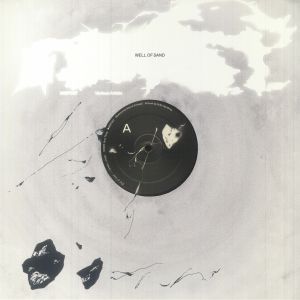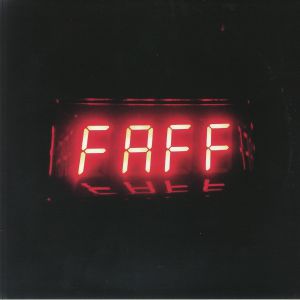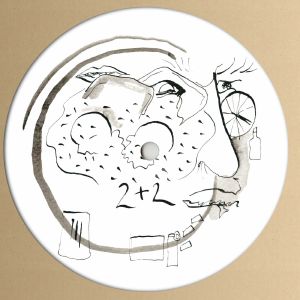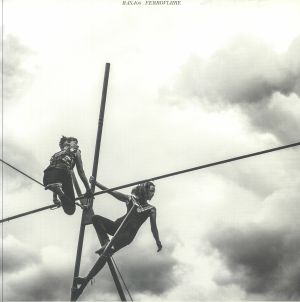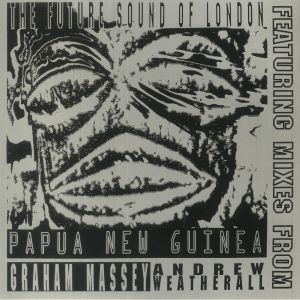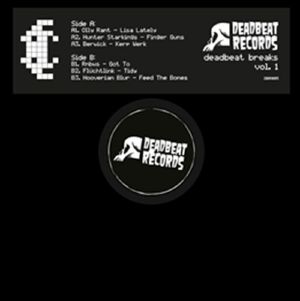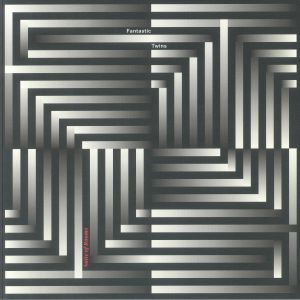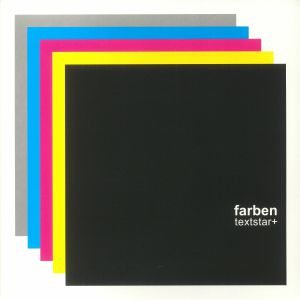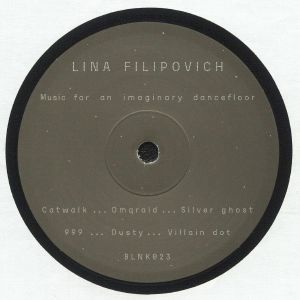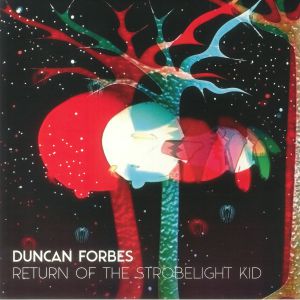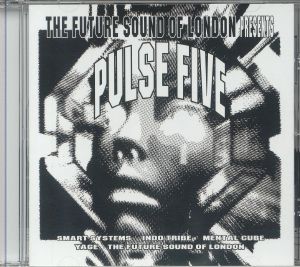Filter
Genre
在庫状況
Featured
リリースタイトル
値段
タグ
Back catalogue: Techno (すべて)
Juno's full catalogue of Techno (すべて)
シングル
Well Of Sand (12")
Cat: MIST 007. Rel: 31 Oct 23
Review: Sure Thing presents Well of Sand, its second compilation. Six tracks from the label's friends and favourites, each new to the roster, offer bold, untempered explorations of tempo and weight, a concise yet expansive collection recalling the deliberate cadence of rippling sand and the sheen of shimmering oases. From Command D's subtly groundswelling, but snappy 'Half Blue (Violet Mix)', to Foreign Material's alarmingly alien 'The Living Planet' and Third Space's supremely stereoized, lowercase opus 'Push (Part 2)', this is a release for that large intersection of audiophiles and techno-philes.
… Read more in stock $13.85
FOXBAM INC 002 (180 gram pink vinyl 12")
Cat: FBI 002. Rel: 24 Jun 24
Review: FOXBAM INC is back to build on the momentum of their first EP with a second one that packs a mighty punch. This one kicks off with EBY, who this year has been cooking up acid for 40 years and here offers the warped low ends and garage-techno power of 'Goldtooth'. Foxtrot vs Ma Bla then mashes up old school samples with earth-shattering bass on 'Deep Down Inside' and bRz vs Stije is a double-time hard techno stomper with warped synths and twisted bass that is inspired by and named after ISCO, a concept from Einstein's general theory of relativity that makes predictions about the dynamics of black holes.
… Read morePlayed by: Juno Recommends Techno
in stock $14.67
Played by: DJ Mau Mau
in stock $14.67
Injury Time EP (140 gram vinyl 12" + insert + sticker)
Cat: WSR RF2. Rel: 16 Aug 21
Review: The first anyone heard from Robert Fleck was an early drop on Well Street back in 2018, and it's been quiet since then. Anyone following Well Street knows it's a hot tip for upfront artists in the fractured fissures of the UK underground, and Fleck makes a welcome return to prove the point. There's a lot of different touchstones you could point to on this release, from nimble-footed broken beat and a whiff of nu jazz orchestration, not to mention a bass music sensibility and an appreciation for deeper strains of UK techno. But more than all that, Fleck merges his unique spread of influences into something fresh and unique, comfortably slipping between conventional genre markings with the kind of flair we've come to expect from Well Street.
… Read more in stock $11.07
in stock $16.60
Review: There's a reason that Future Sound of London's 1991 debut single, 'Papua New Guinea', is periodically reissued: it's a stone-cold classic that sounds unlike anything else. In its original mix form, the track combines traits borrowed from early breakbeat hardcore (booming bass, house-tempo breakbeats) with saucer-eyed vocal samples, twinkling pianos and sounds more often found in ambient house and chill-out tunes from the period. This remastered, hand-numbered vinyl reissue boasts all of the 1992 remixes (as well as the original mix), including a suitably psychedelic, tribal-tinged Andrew Weatherall revision, the duo's own spaced-out ambient style 'Dub' mix, and a sax-sporting Manchester re-wire courtesy of 808 State's Graham Massey.
… Read morePlayed by: DJ Mau Mau, Juno Recommends Breakbeat
in stock $17.71
The Pulse EP Vol 2 (limited 12")
Cat: 12 TOT 14 RE. Rel: 13 Jun 24
Review: The influential 90s IDM and techno act Future Sound of London continues to delve into their early career with the reissue of The Pulse EP Vol 2, originally released in 1991. This EP exemplifies the early techno sound, blending rave elements with the more intelligent and linear side of electronic dance music. Side-1 kicks off with 'Stolen Documents' (Jazz dub) by The Future Sound of London, a track that perfectly melds jazzy undertones with dub influences, creating a sophisticated and immersive experience. Following this is Smart Systems' 'Zip Code' (Stress Ball mix), a piece that balances high-energy beats with a stress-relieving ambiance. Side-2 begins with 'Innate' (W O W mix) by The Future Sound of London, a track that delves into deeper, more atmospheric realms, showcasing the group's innovative approach to soundscaping. Indo Tribe's 'I've Become What You Were' (Insider mix) closes the EP, with a pulsating techno rhythm that encapsulates the essence of the early '90s rave scene. Before their signature chill out sound was made, FSOL his some of their highest notes here with these early EPs.
… Read more in stock $14.39
Cat: BL 006. Rel: 30 Nov 22
Review: Los Angeles-based The Black Lodge began as an intimate gathering place and ritual organised around exploring, sharing and experimenting with diverse forms of electronic music. This is the fourth collection of cuts from various artists of The Black Lodge multiverse. The Poetic Painter M, an alias of Nation chief Traxx, opens up the A-side with the dark late night acid of 'Elusive Clarity Of 1 Mind', followed by Pablo R Ruiz from Detroit providing the spooky lo-fi/sci-fi groove 'El Rey De Amor'. Over on the flip, Michigan's Fashion Flesh serves up a harsh experimental soundscape on 'Kisses' and closes with the tunnelling industrial funk of Fauna53's 'Jam1' (Asymmetrical weirdo orchestra edit).
… Read morePlayed by: ISOUL8 (Volcov)
in stock $27.41
Deadbeat Breaks Vol 1 (12")
Cat: DBR 005. Rel: 25 Apr 25
Review: London underground night train riders Deadbeat Records prioritise techno-breaks handmade for late night and early morning dancefloors, times when both the best and worst comes emerges from each of us. Their inaugural Deadbeat Breaks compilation hears six out of ten full digital curations brought to a shadowy, space-invaded black vinyl truncation, with modern talking synth vomits from Olly Rant, booty bass hups from Hunter Starkings, hackney parroting hurtles from Rnbws, and a closing breakstep broil from Hooverian Blur.
… Read morePlayed by: Juno Recommends Techno
in stock $21.31
アルバム
Berlin Atonal Vol 3 (gatefold 3xLP)
Cat: ATONAL 001. Rel: 26 Aug 15
Review: Berlin Atonal returned two years ago from a long hiatus, 23 years to be exact. After three tremendous festivals this decade, they now present us with their first recordings since 1984. These particular ones from the 2014 edition. Cabaret Voltaire (in this incarnation featuring only Richard H Kirk) was a true highlight and contributes "Microscopic Flesh Fragment" and "Universal Energy". One half of Demdike Stare Miles Whitaker went solo, presenting his truly unique take on techno, and the slow burning attitude of "Vagabond No. 7" is evidence of this. New Zealand's Fis also appears; rather uncategorisable as always on "Dist CL (Atonal Version)." On the third disc we have Northern Electronics main man and modern auteur Abdulla Rashim presenting two commissions from his captivating atmospheric set that year. Limited to 700 copies.
… Read morePlayed by: Juno Recommends Techno, Kastil (Soul Notes/Stale)
in stock $40.70
Suite Of Rooms (transparent red vinyl LP limited to 100 copies)
Cat: HOS 003. Rel: 13 Feb 25
Review: French musician Julienne Dessagne is behind Fantastic Twins and here presents a new album inspired by the Greek myth of Theseus and the Minotaur. Adapted from her composition for the dance piece Meandres, the record is a textural world of leftfield techno, kosmische influences and cinematic soundscapes across five tracks. Along the way, we're told the artist explores mythology and symbolism while drawing from opera, film scores and literary works. Her set up included modular synthesis and layered vocals which lend things a rather psychedelic edge next to the strikingly atmospheric synths and subtle sense of unpredictability.
… Read more in stock $22.14
Textstar Plus (remastered) (gatefold 2xLP + MP3 download code)
Cat: FAITBACK 12LP. Rel: 27 May 22
Review: Before his work became reduced to a fine slither and he shifted into experimental, concept-driven realms, Jan Jelinek dropped some of the finest early doors micro house as Farben. Originally released on Klang Elektronik and now reissued by Jelinek's own Faitiche label, Textstar is a masterpiece of glitchy sample-based electronics with a subtle, implied funk. In some ways the sound has dated - it's very much of the late 90s-early 00s era it was first crafted in. But it's a sound that still engrosses and intrigues, reveling in microscopic detail and subdued moods while retaining a groove that comes through the best on eternally magnificent cut 'Beautone'.
… Read morePlayed by: Joachim Spieth, Juno Recommends Techno
in stock $41.53
Music For An Imaginary Dancefloor (LP limited to 150 copies)
Cat: BLNK 023. Rel: 22 May 24
Review: Lina Filipovich's Music for an imaginary dancefloor is an exploration of the boundary between club music and the abstract, guided by analogue synthesizers and a vivid imagination. Composed from improvisations between June and December 2022, the LP delves into ethereal realms with nervous energy and atmospheric textures that evoke imagery of surreal landscapes and otherworldly experiences. Unlike her previous works which focused on deconstructing existing sounds, Filipovich collaborates with the machines themselves in this album, allowing their aesthetics to intertwine with her creative vision. The result is a collection of tracks that pulse with intensity, drawing listeners into a dreamlike state where reality blurs with fantasy. The album's sonic landscape is rich with atonal drones and intricate delays, creating a sense of unease and wonderment. It's as if the music is speaking a language of spirits, beckoning listeners to explore the allure of the dark and the unknown. Miles Whittaker of Demdike Stare lends his mastering and additional mixing expertise to enhance the album's sonic depth, further immersing listeners in its hypnotic embrace. Overall, Music for an imaginary dancefloor is a stunning trip that defies traditional categorisation. It invites listeners to step into a realm where the boundaries of reality dissolve, leaving only the pulsating rhythms and haunting melodies to guide them through the darkness. Lina Filipovich's vision is realised with remarkable clarity and depth, making this album a standout release in the realm of experimental electronic music.
… Read morePlayed by: Juno Recommends Experimental
in stock $26.56
Played by: Juno Recommends Breakbeat
in stock $26.30
in stock $15.23

 USD
USD





